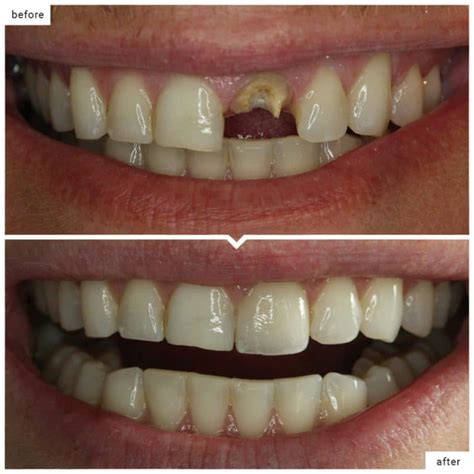Tooth On Nerve
Experiencing a sensation where it feels like a tooth is directly on a nerve can be quite uncomfortable and even painful. This condition is more commonly known as having a tooth that is impinging on the nerve or, in some cases, an exposed nerve due to various dental issues. Understanding the causes, symptoms, and available treatments for this condition can help alleviate the discomfort and prevent further complications.
Causes of Tooth on Nerve Sensation
The sensation of a tooth being directly on a nerve can stem from several dental issues. One of the primary causes is tooth decay or cavities that reach the pulp of the tooth, where the nerves are located. When bacteria penetrate the enamel and dentin, they can infect the pulp, leading to inflammation and pressure on the nerve endings.
Another common cause is gum recession, which exposes the roots of the teeth. The roots do not have the same protective layer of enamel as the crowns, making them more sensitive and susceptible to nerve exposure. This condition can be due to poor oral hygiene, aggressive brushing, or periodontal disease.
Dental procedures, such as fillings, crowns, or extractions, can sometimes cause irritation or damage to the nerves, leading to temporary or, in some cases, permanent sensitivity. Trauma to the tooth, such as a crack or fracture, can also expose the nerve and cause significant pain.
Symptoms
The symptoms of having a tooth on a nerve can vary from mild to severe and include:
- Sharp Pain: A sudden, sharp pain when consuming hot or cold foods and beverages or when biting down.
- Dull Ache: A persistent, dull ache that can be constant or intermittent.
- Sensitivity: Increased sensitivity to temperature changes, sweet tastes, or pressure.
- Discomfort: General discomfort in the tooth or surrounding gums that can interfere with eating, drinking, and even speaking.
Treatments and Solutions
The treatment for a tooth on a nerve largely depends on the underlying cause. In cases of tooth decay, a dentist may perform a root canal to remove the infected pulp and fill the tooth to prevent further infection. For gum recession, gum grafting may be necessary to cover the exposed roots and protect the nerves.
In scenarios where the issue stems from a dental procedure, the dentist may need to adjust the filling, crown, or other restoration to alleviate the pressure on the nerve. For traumatic injuries, treatment may involve monitoring the tooth for signs of infection or abscess, or in severe cases, extraction if the tooth cannot be saved.
Preventive measures, such as regular dental check-ups, good oral hygiene practices (brushing and flossing), and a balanced diet, can significantly reduce the risk of developing conditions that lead to the sensation of a tooth being on a nerve.
Home Remedies for Relief
While dental intervention is often necessary to address the underlying cause, there are some home remedies that can provide temporary relief from the discomfort:
- Desensitizing Toothpaste: Using toothpaste specifically designed for sensitive teeth can help block the nerve endings and reduce pain.
- Salt Water Rinse: Rinsing with warm salt water several times a day can help reduce swelling and ease pain.
- Cold Compress: Applying a cold compress to the outside of the cheek near the aching tooth can help numb the area and reduce pain.
Importance of Professional Dental Care
While home remedies can offer temporary relief, it’s crucial to seek professional dental care for a definitive diagnosis and appropriate treatment. Delaying treatment can lead to more severe complications, including the loss of the tooth, infection spreading to other parts of the face or skull, or the development of an abscess.
Conclusion
The sensation of a tooth being directly on a nerve is a signal that something is amiss and requires dental attention. By understanding the potential causes, recognizing the symptoms, and seeking appropriate treatment, individuals can alleviate their discomfort and prevent the condition from worsening. Regular dental care and good oral hygiene practices are key to preventing many of the issues that lead to nerve sensitivity and ensuring overall dental health.
What are the common signs that a tooth is on a nerve?
+The common signs include sharp pain when consuming hot or cold foods and beverages, a dull ache, increased sensitivity, and general discomfort in the tooth or surrounding gums.
How can I temporarily relieve tooth sensitivity at home?
+You can use desensitizing toothpaste, rinse with warm salt water several times a day, or apply a cold compress to the outside of the cheek near the aching tooth to help numb the area and reduce pain.
Why is it important to seek dental care for a tooth on a nerve?
+Seeking dental care is important to address the underlying cause, prevent further complications such as the loss of the tooth or infection, and to alleviate discomfort and pain.
In conclusion, while the sensation of a tooth being on a nerve can be distressing, understanding the causes and seeking appropriate dental care can lead to effective management and prevention of the condition. Regular dental check-ups and good oral hygiene practices are essential for maintaining dental health and preventing complications.

